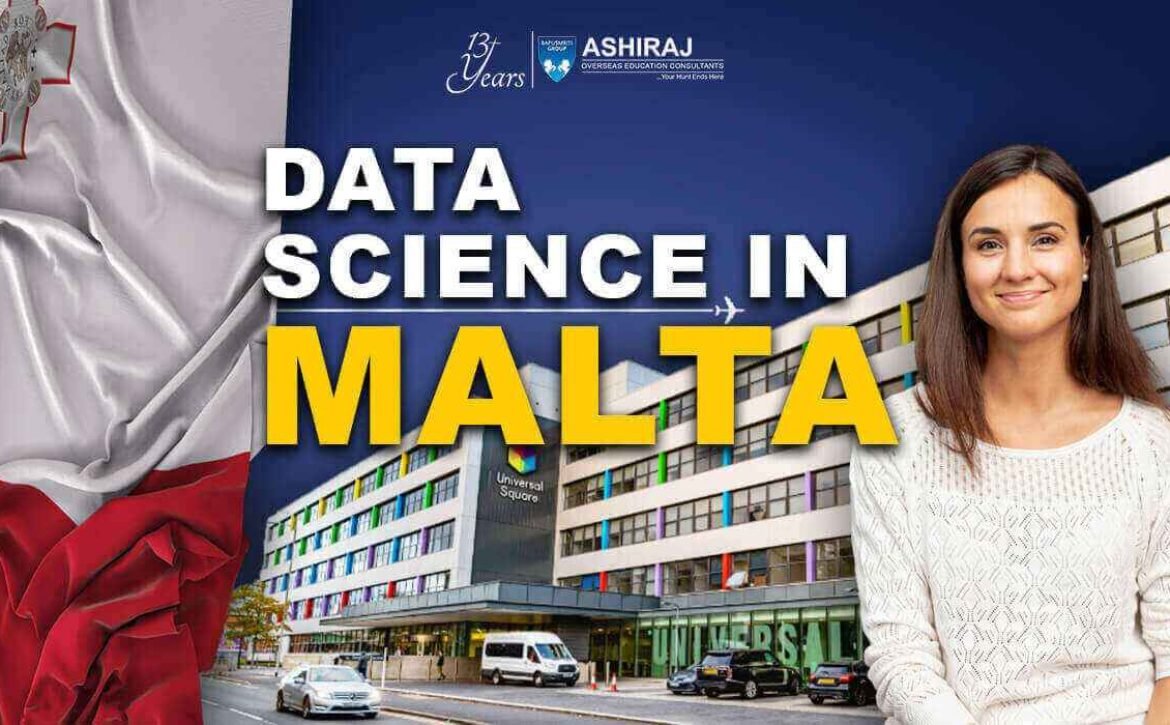
Data Science in Malta
In the vibrant landscape of technology and innovation, Data Science in Malta has emerged as a pivotal force, catalyzing advancements across various industries. Nestled in the heart of the Mediterranean, Malta has rapidly positioned itself as a hub for cutting-edge data-driven solutions, fostering a dynamic ecosystem for data scientists and professionals alike. With a strategic location and a conducive business environment, the Maltese archipelago has become an attractive destination for enterprises seeking to harness the power of data analytics. The convergence of academic expertise, government support, and a burgeoning tech community has propelled Data Science in Malta into a realm of continuous growth and innovation.
As organizations in Malta embrace the era of data-driven decision-making, the field of Data Science in Malta plays a pivotal role in transforming raw information into actionable insights. From finance and healthcare to tourism and gaming, industries across the Maltese islands leverage sophisticated data analytics to enhance operational efficiency, drive strategic planning, and gain a competitive edge in the global market. The demand for skilled data scientists continues to rise, highlighting the integral role of Malta’s Data Science community in shaping the future of technology-driven solutions on both a regional and international scale.
Why Study Data Science in Malta?
Opting to study Data Science in Malta unveils a spectrum of opportunities and advantages that render this Mediterranean archipelago an appealing choice for prospective data scientists. Here are compelling reasons to consider pursuing your data science education in Malta:
- Thriving Tech Ecosystem: Malta has cultivated a vibrant tech scene, providing students exposure to cutting-edge technologies and fostering a culture of innovation within the realm of Data Science in Malta.
- Global Academic Collaboration: Recognized academic institutions in Malta collaborate with international counterparts, offering students access to a diverse and enriching educational experience, shaping a global perspective in the field of data science.
- Strategic Industry Integration: With an increasing emphasis on data-driven decision-making, Malta seamlessly integrates its academic curriculum with industry demands, ensuring that students are equipped with practical skills highly relevant to the evolving landscape of Data Science in Malta.
- Multicultural Learning Environment: Malta’s cosmopolitan setting creates a melting pot of cultures and ideas, enriching the educational experience and providing students with a broader perspective on the applications of data science across various domains.
- Government Support and Incentives: The Maltese government actively supports the development of the tech sector, offering incentives for research and development activities, creating an environment conducive to the flourishing of Data Science in Malta.
In summary, selecting Malta as your destination for studying Data Science not only opens doors to a world-class education but also immerses you in an environment where theoretical knowledge seamlessly converges with real-world applications.
Course Curriculum For Data Science in Malta
Exploring the course curriculum for Data Science in Malta unveils a comprehensive and dynamic educational journey tailored to meet the evolving demands of the industry. Here’s a breakdown of what students can expect in their pursuit of data science education in Malta:
- Foundational Concepts: The curriculum begins with a strong emphasis on foundational concepts in statistics, mathematics, and computer science, providing students with a solid grounding in the fundamental principles that underpin Data Science in Malta.
- Programming Proficiency: A key component involves developing programming proficiency, with a focus on languages such as Python and R, ensuring students can effectively apply their skills in real-world scenarios within the context of Data Science in Malta.
- Machine Learning Techniques: Courses delve into machine learning techniques, exploring algorithms, model development, and predictive analytics, empowering students to harness the power of machine learning in solving complex problems within the landscape of Data Science in Malta.
- Big Data Analytics: Recognizing the significance of big data, the curriculum incorporates modules on big data analytics, equipping students with the tools to process and derive meaningful insights from large datasets, a crucial aspect of Data Science in Malta.
- Industry-Relevant Projects: To bridge the gap between theory and practice, students engage in hands-on, industry-relevant projects, applying their knowledge to real-world scenarios and gaining practical experience that aligns with the demands of Data Science in Malta.
- Ethical Considerations: With a focus on ethical considerations, the curriculum addresses the responsible use of data, ensuring that students graduate with a deep understanding of the ethical implications surrounding Data Science in Malta.
In essence, the course curriculum for Data Science in Malta reflects a forward-thinking approach, blending theoretical knowledge with practical applications to prepare students for the dynamic and ever-expanding field of data science in Malta.
List of Top Universities to Study Data Science in Malta
University | Program Offerings | Highlights |
University of Malta | Bachelor’s, Master’s, and PhD in Data Science | Pioneering research in Data Science in Malta. |
Malta College of Arts, Science & Technology (MCAST) | Bachelor’s in Data Science | Strong industry partnerships for hands-on experience. |
American University of Malta | Master’s in Data Science | Globally recognized faculty in Data Science in Malta. |
Middlesex University Malta | BSc and MSc in Data Science and Business Analytics | Practical focus with industry-oriented curriculum. |
Exploring the academic landscape for Data Science in Malta reveals a selection of top-tier universities offering comprehensive programs tailored to meet the demands of the rapidly evolving field. Here is a curated list of institutions renowned for their excellence in delivering Data Science education:
- University of Malta: Pioneering research and a spectrum of programs, including Bachelor’s, Master’s, and PhD options, position the University of Malta at the forefront of Data Science in Malta.
- Malta College of Arts, Science & Technology (MCAST): With a focus on practical experience, MCAST’s Bachelor’s program in Data Science is enriched by strong industry partnerships, providing students with valuable hands-on exposure.
- American University of Malta: Offering a Master’s in Data Science, this institution boasts globally recognized faculty, contributing to the international prominence of Data Science in Malta.
- Middlesex University Malta: Bridging academia and industry, Middlesex University offers both BSc and MSc programs in Data Science and Business Analytics, ensuring graduates are well-prepared for the dynamic landscape of Data Science in Malta.
Admission to Data Science programs in Malta is contingent upon meeting specific eligibility criteria and adhering to prescribed admission requirements. The following outlines the common criteria across various institutions offering Data Science in Malta:
Admission Requirements and Eligibility Criteria For Data Science in Malta
- Educational Qualifications:
For Bachelor’s Programs: Applicants typically need a high school diploma or equivalent with a strong foundation in mathematics and computer science.
For Master’s Programs: A relevant bachelor’s degree in a related field such as Computer Science, Statistics, or Mathematics is commonly required.
- Standardized Test Scores:
Some institutions may require standardized test scores, such as the SAT or ACT for undergraduate programs or GRE for graduate programs. These scores help assess the academic aptitude of applicants in the context of Data Science in Malta.
- Language Proficiency:
As courses are often conducted in English, proficiency in the language is crucial. Applicants may need to submit scores from recognized English language proficiency tests like IELTS or TOEFL.
- Letters of Recommendation:
Many institutions require letters of recommendation from academic or professional references to assess an applicant’s suitability for Data Science programs in Malta.
- Statement of Purpose:
A well-crafted statement of purpose is often mandatory, outlining the applicant’s academic and professional background, motivations for pursuing Data Science in Malta, and career aspirations.
- Work Experience (for Master’s Programs):
Some Master’s programs may prefer candidates with relevant work experience in the field of Data Science. Professional experience enhances the practical perspective of students in the context of Data Science in Malta.
- Interviews:
In certain instances, universities may conduct interviews as part of the admission process to gauge the applicant’s enthusiasm, commitment, and alignment with the goals of Data Science in Malta.
Prospective students interested in pursuing Data Science in Malta should carefully review the specific requirements of each institution, as they may vary. Adhering to these criteria ensures a competitive application for admission to the burgeoning field of Data Science in Malta.
Documents Required For Data Science in Malta” and add “Data Science in Malta
When applying for Data Science programs in Malta, prospective students are typically required to submit a set of documents to support their application. The following outlines the essential documents needed for admission to Data Science programs in Malta, underscoring the specific requirements relevant to the field:
- Application Form:
A duly completed application form, which can usually be obtained and submitted online through the university’s official website, is the initial step in expressing interest in Data Science in Malta.
- Educational Transcripts and Certificates:
Academic transcripts and certificates from previously attended institutions, including high school for undergraduate programs and bachelor’s degree for master’s programs, are integral. These documents validate the educational background of applicants in the realm of Data Science in Malta.
- Standardized Test Scores:
Copies of standardized test scores, such as SAT, ACT, or GRE, as required by the institution. These scores serve as a benchmark for assessing the academic readiness of applicants interested in Data Science in Malta.
- Language Proficiency Scores:
For non-native English speakers, proof of English language proficiency through scores from tests like IELTS or TOEFL is crucial. Proficiency in English is essential for successful participation in the academic discourse surrounding Data Science in Malta.
- Letters of Recommendation:
Typically, two to three letters of recommendation from academic or professional references, attesting to the applicant’s qualifications, character, and potential for success in Data Science in Malta.
- Statement of Purpose:
A well-crafted statement of purpose outlining the applicant’s motivations, academic and professional background, and alignment with the goals of Data Science in Malta. This document provides insights into the applicant’s aspirations and suitability for the program.
- Resume/Curriculum Vitae:
A comprehensive resume or curriculum vitae highlighting relevant academic achievements, work experience, and any additional credentials pertinent to Data Science in Malta.
- Portfolio (if applicable):
For some programs, especially at the master’s level, a portfolio showcasing relevant projects, research, or professional experience in Data Science may be requested.
- Copy of Passport and Passport-Sized Photos:
Identification documents, such as a copy of the passport, and passport-sized photos for administrative purposes related to enrollment in Data Science programs in Malta.
It is crucial for applicants to thoroughly review the specific document requirements outlined by each institution offering Data Science in Malta, ensuring the accurate and timely submission of all necessary materials for a comprehensive application.
Admission Process For Data Science in Malta
The admission process for Data Science programs in Malta involves several stages, ensuring that prospective students are evaluated comprehensively for their suitability to pursue studies in this dynamic field. Here is a detailed overview of the typical admission process for Data Science in Malta:
- Expression of Interest:
Aspiring students begin the process by expressing their interest in pursuing Data Science in Malta. This often involves filling out an online application form available on the university’s official website.
- Document Submission:
Applicants are required to gather and submit a set of documents, including academic transcripts, standardized test scores (if applicable), letters of recommendation, a statement of purpose, and language proficiency scores, as part of the application for Data Science in Malta.
- Application Review:
The submitted documents undergo a thorough review by the admissions committee. This stage involves an assessment of academic qualifications, test scores, and other supporting materials to determine the applicant’s eligibility for Data Science in Malta.
- Interview (if applicable):
Some universities may conduct interviews as part of the admission process for Data Science in Malta. Interviews provide an opportunity for the admissions committee to evaluate the applicant’s motivations, aspirations, and alignment with the goals of the program.
- Evaluation of Portfolio (if applicable):
For programs that require a portfolio, the admissions committee reviews the submitted portfolio, which may include projects, research, or professional experience relevant to Data Science in Malta.
- Language Proficiency Assessment:
Non-native English speakers undergo a language proficiency assessment to ensure their ability to engage effectively in the academic discourse surrounding Data Science in Malta.
- Admission Decision:
Based on the comprehensive evaluation of the application materials, interviews, and any additional assessments, the admissions committee makes a final decision regarding the applicant’s admission to the Data Science program in Malta.
- Offer Acceptance and Enrollment:
Successful applicants receive an offer of admission. Upon accepting the offer, they proceed with the enrollment process, which may include submitting additional documentation, paying tuition fees, and attending orientation sessions related to Data Science in Malta.
- Visa Application (for international students):
International students may need to apply for a student visa to study Data Science in Malta. This involves submitting additional documents, such as proof of financial means and a valid passport.
- Commencement of Classes:
With the administrative processes completed, students officially commence their studies in Data Science in Malta, embarking on a rewarding academic journey in this burgeoning field.
Prospective students are advised to carefully follow the specific guidelines and requirements outlined by each institution, ensuring a smooth and successful application process for Data Science in Malta.
“Education is the most powerful weapon which you can use to change the world.”
Nelson Mandela
Cost of Studying Data Science in Malta
The cost of studying Data Science in Malta encompasses various factors, providing a comprehensive overview in numbers:
- Tuition Fees:
For undergraduate programs in Data Science in Malta, tuition fees range from approximately €7,000 to €13,000 per year. Master’s programs may have higher fees, ranging from €10,000 to €20,000 annually.
- Living Expenses:
The estimated monthly living expenses for students pursuing Data Science in Malta range from €800 to €1,200. This includes accommodation, food, transportation, and other miscellaneous costs.
- Books and Study Materials:
Additional expenses for books and study materials are approximately €500 to €800 per academic year for students in Data Science programs in Malta.
- Health Insurance:
Health insurance is mandatory for international students and typically costs around €160 to €200 per year, contributing to the overall cost of studying Data Science in Malta.
- Visa Fees (for international students):
International students may incur visa fees, which range from €60 to €120, adding to the initial expenses associated with pursuing Data Science in Malta.
- One-time Registration Fees:
Some universities may charge a one-time registration fee ranging from €100 to €300 for students enrolling in Data Science programs in Malta.
- Transportation:
Monthly transportation costs for students vary, but on average, they range from €30 to €50, depending on the mode of transportation chosen, contributing to the overall cost of living while studying Data Science in Malta.
- Miscellaneous Expenses:
Miscellaneous expenses, including social activities, mobile phone bills, and other personal items, may amount to approximately €200 to €300 per month for students pursuing Data Science in Malta.
In summary, the total cost of studying Data Science in Malta can range from €8,000 to €15,000 per year for tuition and approximately €10,000 to €15,000 annually for living expenses. Prospective students should carefully budget and consider these factors when planning to pursue their education in the field of Data Science in Malta.
Scholarships for Data Science in Malta
|
Scholarship Name |
Eligibility Criteria |
Award Amount |
Application Deadline |
|
Malta Government Scholarships |
Open to Maltese and international students |
Full or partial tuition |
Varies (Annually) |
|
University-specific Scholarships |
Merit-based or need-based criteria |
Varies |
Check with the university |
|
Industry-sponsored Scholarships |
Often tied to specific research or projects |
Varies |
Dependent on sponsor |
|
Erasmus+ Program |
Available for European students through Erasmus+ |
Mobility and stipend |
Varies (Annual cycles) |
|
Data Science Research Grants |
For students engaging in impactful research projects |
Research funding |
Dependent on grant cycle |
Exploring scholarship opportunities for prospective students reveals various avenues for financial support. Here’s a revised table detailing prominent scholarships:
- Malta Government Scholarships:
Open to both Maltese and international students.
Offers full or partial tuition coverage.
Application deadlines vary and are announced annually.
- University-specific Scholarships:
Available based on merit or financial need.
Award amounts vary, and eligibility criteria depend on the specific university.
Application deadlines should be verified with the respective university.
- Industry-sponsored Scholarships:
Linked to specific research or industry projects.
Award amounts vary and depend on the terms set by the sponsoring organization.
Application timelines depend on the sponsoring entity.
- Erasmus+ Program:
Geared towards European students.
Provides mobility opportunities and stipends.
Application deadlines follow annual cycles.
- Data Science Research Grants:
Aimed at students involved in impactful research projects.
Funding amounts are based on the nature and scope of the research.
Application deadlines are contingent on the grant cycle.
Prospective students should thoroughly research and apply for these scholarships, considering specific eligibility criteria and deadlines. These opportunities can significantly alleviate the financial burden associated with pursuing education.
Career Opportunities After Completing Data Science in Malta
Completing a program in Data Science in Malta opens the door to a variety of lucrative career opportunities. Here’s a concise table detailing potential roles and their average annual salaries in Indian Rupees (INR):
|
Career Path |
Job Role |
Average Annual Salary (INR) |
|
Data Scientist |
Analyzing and interpreting complex data sets, building models |
₹10,00,000 ₹15,00,000 |
|
Machine Learning Engineer |
Designing and implementing machine learning algorithms |
₹12,00,000 ₹18,00,000 |
|
Data Analyst |
Examining and interpreting data, generating insights |
₹8,00,000 ₹12,00,000 |
|
Business Intelligence Analyst |
Analyzing market trends, providing strategic insights |
₹9,00,000 ₹14,00,000 |
|
Data Engineer |
Developing, constructing, testing, and maintaining architectures |
₹10,00,000 ₹16,00,000 |
- Data Scientist:
Job Role: Analyzing and interpreting complex data sets, building models.
Average Annual Salary: ₹10,00,000 ₹15,00,000.
- Learning Engineer:
Job Role: Designing and implementing machine learning algorithms.
Average Annual Salary: ₹12,00,000 ₹18,00,000.
- Data Analyst:
Job Role: Examining and interpreting data, generating insights.
Average Annual Salary: ₹8,00,000 ₹12,00,000.
- Business Intelligence Analyst:
Job Role: Analyzing market trends, providing strategic insights.
Average Annual Salary: ₹9,00,000 ₹14,00,000.
- Data Engineer:
Job Role: Developing, constructing, testing, and maintaining architectures.
Average Annual Salary: ₹10,00,000 ₹16,00,000.
Pursuing Data Science in Malta not only provides a solid education but also sets the stage for a rewarding career with competitive salaries in the Indian job market.
Frequently Asked Questions About Data Science in Malta
Data Science in Malta refers to the interdisciplinary field that utilizes scientific methods, processes, algorithms, and systems to extract insights and knowledge from structured and unstructured data.
Malta offers a thriving tech ecosystem, global academic collaborations, and strategic industry integration, making it an attractive destination for those seeking quality education in Data Science in Malta.
Admission requirements typically include educational qualifications, standardized test scores, language proficiency, letters of recommendation, a statement of purpose, and, for master’s programs, relevant work experience.
Essential documents include the application form, educational transcripts, standardized test scores, language proficiency scores, letters of recommendation, a statement of purpose, and, if applicable, a resume or portfolio.
Yes, various scholarships, such as Malta Government Scholarships, university-specific scholarships, industry-sponsored scholarships, Erasmus+ Program, and Data Science Research Grants, can provide financial support for studying Data Science in Malta.
The cost varies but typically includes tuition fees (€8,000 to €20,000), living expenses (€10,000 to €15,000 annually), books, health insurance, visa fees, and other miscellaneous expenses for pursuing Data Science in Malta.
Graduates can pursue roles like Data Scientist, Machine Learning Engineer, Data Analyst, Business Intelligence Analyst, and Data Engineer, with average annual salaries ranging from ₹8,00,000 to ₹18,00,000 in INR.
The duration varies based on the level of study. Bachelor’s programs typically take 3-4 years, while master’s programs may range from 1-2 years for completing Data Science in Malta.
Yes, international students can typically work part-time during the academic year and full-time during scheduled breaks, providing opportunities to gain practical experience while pursuing Data Science in Malta.
Yes, as courses are often conducted in English, proficiency is mandatory. Applicants may need to submit scores from recognized English language proficiency tests like IELTS or TOEFL for successful participation in Data Science in Malta programs.




